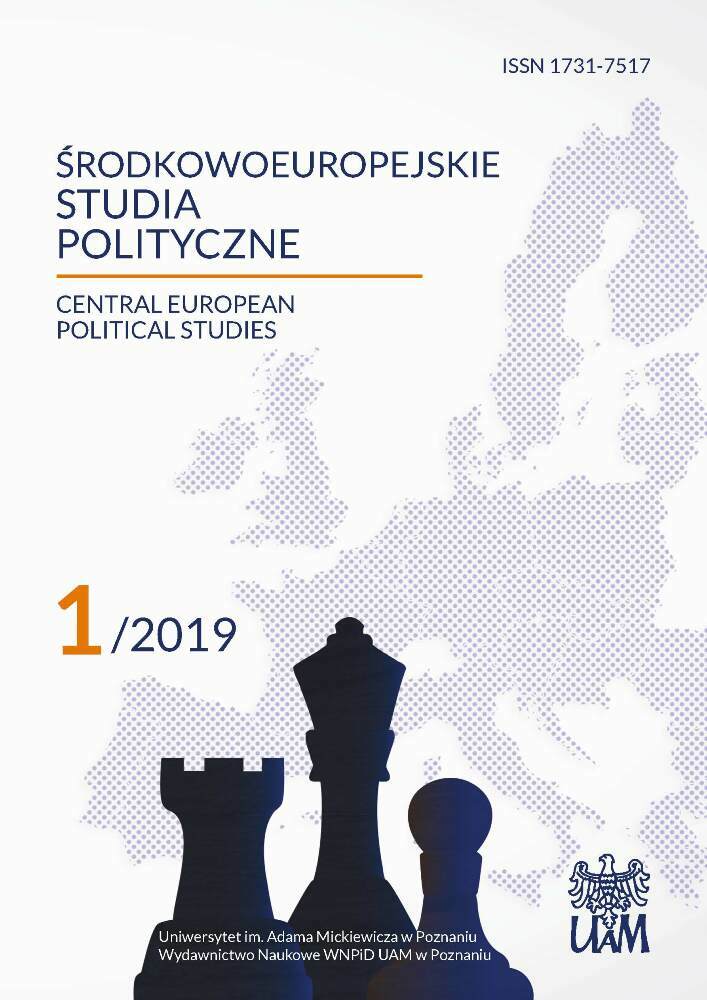Abstrakt
Poziom życia obywateli poszczególnych państw świata utożsamiany jest najczęściej z wysokością produktu krajowego brutto w ujęciu nominalnym oraz per capita. W przestrzeni publicznej natomiast mówi się o rozwoju „społeczno-gospodarczym” mającym mieć odbicie w powyżej wymienionych wskaźnikach gospodarczych. Przekonanie o uniwersalności tych mierników, a także zrównywanie rozwoju społecznego z gospodarczym staje się coraz częstszą podstawą zarzutów wobec miernika PKB. Jaka jest jednak prawdziwa relacja PKB do poziomu szczęśliwości obywateli? Zagadnienie to stanowi przedmiot rozważań autorówBibliografia
Bauman Z. (2008), Sztuka Życia, Wydawnictwo Literackie, Kraków.
Coyle D. (2014), Warfare and the Invention of GDP, https://www.theglobalist.com/warfare-and-the-invention-of-gdp/, 4.07.2018.
Degutis M., Urbonavlclus S., Galzutls A. (2010), Relation between GDP and life satisfaction in the European Union, „Ekonomika”, t. 89.
Dickinson E. (2011), GDP: a brief history, https://foreignpolicy.com/2011/01/03/gdp-a-brief-history/, 4.07.2018.
Eurostat, http://ec.europa.eu/eurostat/data/database, 8.07.2018.
Keyser H. (2015), The Happiest Countries According to the 2015 World Happiness Report, http://mentalfloss.com/article/63409/happiest-countries-according-2015-world-happiness-report, 6.07.2018.
Krok E. (2016), Metody pomiaru szczęścia i jego zależność od dochodów, „Studia Ekonomiczne. Zeszyty Naukowe Uniwersytetu Ekonomicznego w Katowicach”, nr 286.
Kuznets S. (1934), National Income, 1929-1932, https://fraser.stlouisfed.org/content/?title_id=971&filepath=/files/docs/publications/natincome_1934/19340104_nationalinc.pdf, 4.07.2018.
Lepenies P. (2016), The Power of a Single Number. A Political History of GDP, Columbia University Press, New York-Chichester-West Sussex.
Myson-Byrska J. (2017), Konsumpcjonizm jako błąd mentalny, „Logos i Ethos”, nr 45.
People and corruption: Europe and Central Asia 2016, Transparency International, https://www.transparency.org/whatwedo/publication/people_and_corruption_europe_and_central_asia_2016, 8.07.2018.
Słomski D. (2018), Włosi odgrywają grecką tragedię. Kryzys wisi na włosku, https://www.money.pl/gospodarka/wiadomosci/artykul/wlochy-kryzys-rozpad-strefy-euro-zadluzenie,41,0,2407465.html, 8.07.2018.
Veenhoven R., Vergunst F. (2012), The Easterlin Illusion. Economic growth does go with greater happiness, https://personal.eur.nl/veenhoven/Pub2010s/Easter-linIllusion11c.pdf, 6.07.2018.
The Easterlin Paradox, Economic and Social Research Council, https://esrc.ukri.org/about-us/50-years-of-esrc/50-achievements/the-easterlin-paradox/, 6.07.2018.
Wyżnikiewicz B. (2017), Produkt krajowy brutto jako przedmiot krytyki, „Wiadomo-ści Statystyczne”, nr 3 (670).
World Happiness Report 2017 (2017), http://worldhappiness.report/ed/2017/, 8.07.2018.
World Happiness Report 2016 (2016), http://worldhappiness.report/ed/2016/, 8.07.2018.
Zatyka M. (2015), Portugalia wychodzi na prostą po latach kryzysu, https://www.bankier.pl/wiadomosc/Portugalia-wychodzi-na-prosta-po-latach-kryzysu-3321324.html, 8.07.2018.


